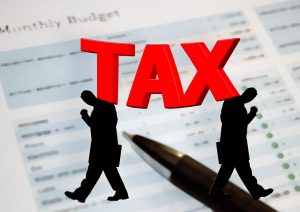 What You Need to Know About the IRS’s Power to Garnish Your Wages
What You Need to Know About the IRS’s Power to Garnish Your Wages
The IRS is unlike any other creditor. They’re a massive organization with the power of the federal government behind them. So wage garnishment and taxes work differently than with other kinds of debt.
If you have a lot of tax debt and want to avoid or stop wage garnishment from the IRS, here’s what you need to know.
Can the IRS Really Take My Wages?
If you owe money to the IRS, they have the power to collect it from your wages through a process called wage garnishment. Wage garnishment for taxes is a legal way for the IRS to collect unpaid taxes from your paycheck, leaving you with less money to pay for your basic needs.
Creditors of all kinds use wage garnishment. Usually they have to sue in court for permission.
But because the IRS isn’t subject to state law, they can actually do things other creditors can’t. This includes wage garnishment with or without a court order, although they usually only use it as a last resort.
 What Warning Can I expect?
What Warning Can I expect?
Unlike other creditors, the IRS doesn’t technically have to warn you, but they will.
They want you to pay, and so they’ll inform you of your debt and what will happen if you don’t pay. You will likely be very aware of what you owe long before a garnishment begins.
Are There Limits on What They Can Take?
Generally, a state limits the amount a creditor can garnish from your wages. For example, Tennessee limits them to no more than 25% of your disposable income. (It could also be the amount by which your weekly income exceeds 30 times the minimum wage—whichever is less.)
However, the IRS isn’t held to the same rules. As a result, they can actually take significantly more. Some people might see 50% or even more of their wages garnished. It can leave families desperate and with no obvious way to make ends meet.
 How Can I Take Action and Stop Wage Garnishment Over Taxes?
How Can I Take Action and Stop Wage Garnishment Over Taxes?
It’s important to take action if you receive a notice of wage garnishment for taxes. Ignoring the problem will only make it worse, as the IRS can continue to garnish your wages until the debt is paid in full.
There are options available to you. You may be able to negotiate a payment plan with the IRS, and you should start there.
If that fails, or if you have other debts you can’t pay like credit card debt, medical bills, etc, you may want to consider bankruptcy.
Chapter 7 and Chapter 13 bankruptcy can help with tax debt by either eliminating it completely or by providing a structured repayment plan. It may also help with your other outstanding debt, so you can come out completely debt-free.
That means more money in your pocket at the end of a pay period instead of losing it all to creditors like the IRS.
 Help With Wage Garnishment and Taxes
Help With Wage Garnishment and Taxes
For over 30 years, our Memphis bankruptcy attorneys have helped thousands of people get out of debt — including tax debt. We can help you, too.
We offer a free consultation where we’ll discuss your options with you and help you figure out a course of action. We’ll look at whether bankruptcy could be the right fit for you. And then if it is, we’ll talk about the kind of bankruptcy you might want and why.
Our team prides itself in helping people get back on their feet, where they don’t live under the constant threat of wage garnishment any more. We would love to help you, too.
To get started, fill out the form on this page or give us a call at 901-327-2100.
